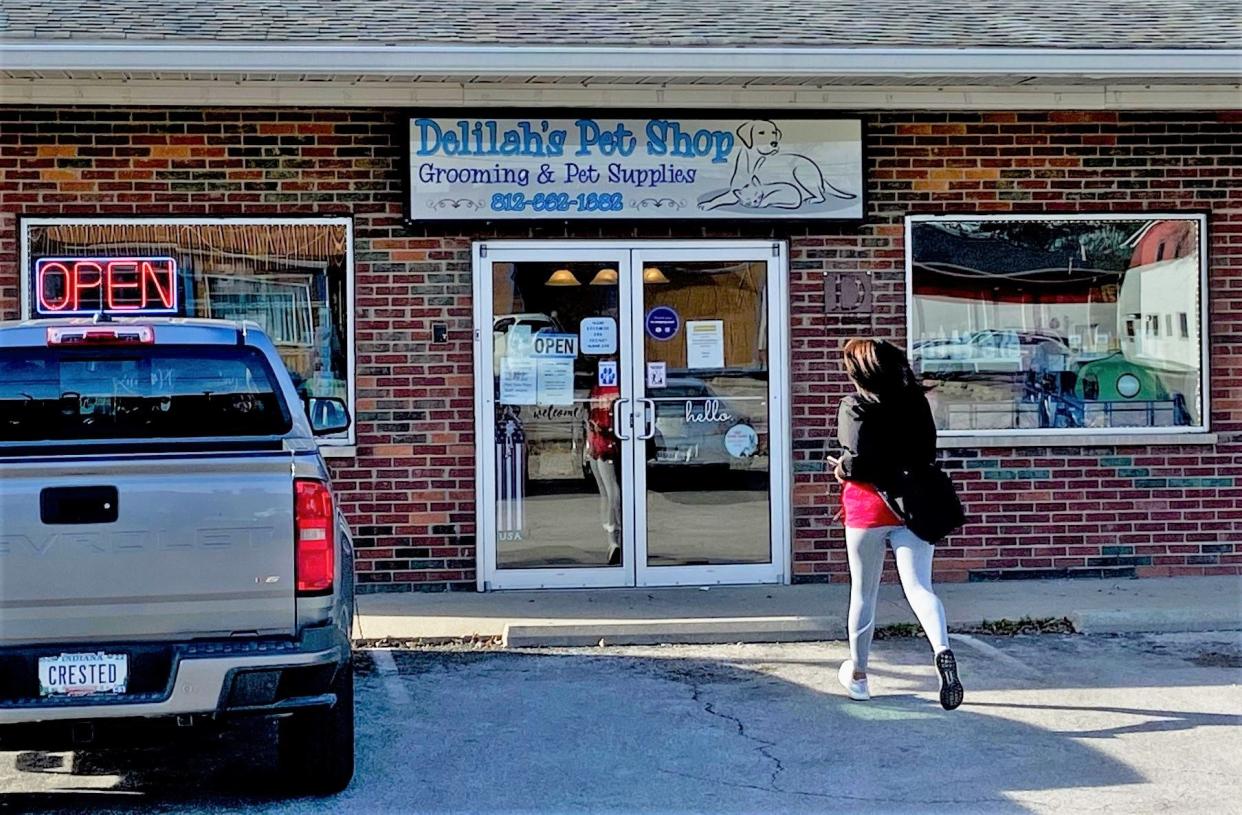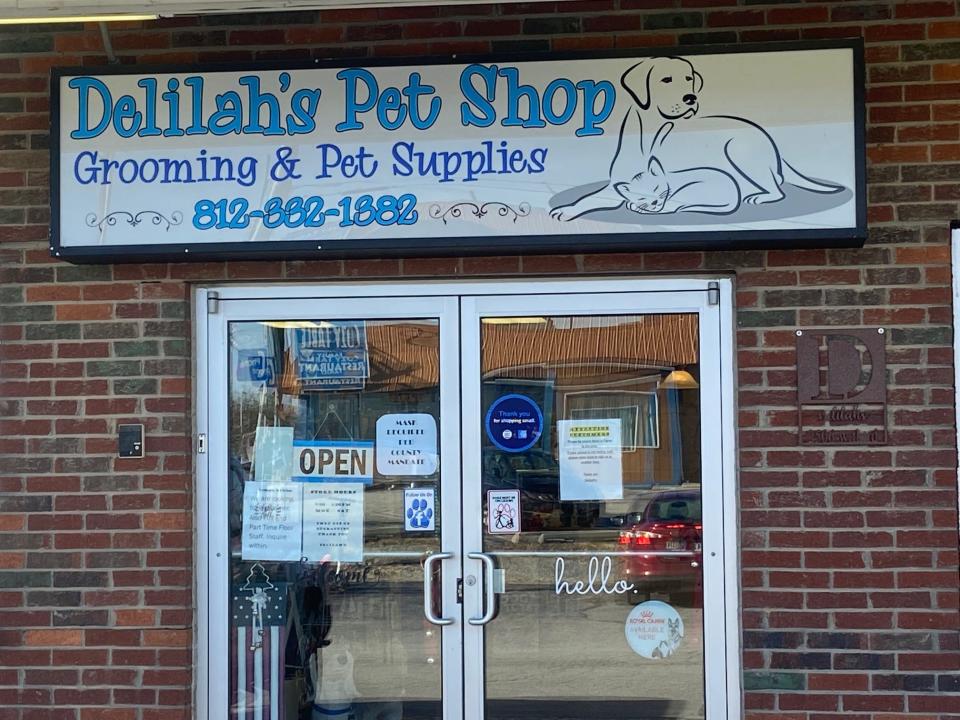Bloomington council hopes pet retail ban will decrease demand for cats, dogs from mills

Beginning in 2023, Bloomington pet shops will be prohibited from selling cats and dogs.
The Bloomington City Council on Wednesday voted 8-0 to ban such sales because the law would “likely" decrease demand for dogs and cats bred in puppy and kitten mills, the law’s sponsors wrote.
“Decreasing demand is one component of reducing or eliminating puppy/kitten mills altogether,” according to the sponsors, council members Susan Sandberg, Isabel Piedmont-Smith and Dave Rollo.
Sandberg said in Wednesday's council meeting the city ordinance came about because community members contacted council members to propose such a law. She said the majority of people who have provided feedback on the proposal said they support it. She also emphasized the law would not prevent people from buying whatever pet they desire from responsible breeders.
Stores that violate the law can be fined $500 per occurrence.
More: Holiday markets, music and appearances by Santa himself on tap this weekend
Delilah's Pet Shop, Anthony's Pets in College Mall affected by retail pet ban
The ordinance will affect two local pet stores: Delilah’s Pet Shop, at 2506 W. Third St., and Anthony’s Pets, in College Mall.
Karene Kidwell, founder and former owner of Delilah’s, told The Herald-Times Thursday that she would like to hear the city’s definition of what a responsible breeder is. She said she buys her animals through a buyer who knows the store does not sell animals from mills. Most of the animals are sourced from individual backyard breeders, Kidwell said.
The Humane Society says on its website that responsible breeders “never” sell their animals to pet stores and that dogs and cats sold at such stores come from puppy or kitten mills.
Samantha Morton, the Humane Society’s state director, told the council Wednesday that such mills place profits before the animals’ well being.
“Oftentimes you’ll see stacked cages, and the animals are not getting the adequate exercise and enrichment that you would give to a family member that’s a pet,” she said.
Morton said more than 400 localities and five states have prohibited cat and dog sales in pet stores. She said Indiana has seen an influx of such stores because Illinois recently passed legislation that will ban retail pet sales. She expects additional pet stores to pop up in Indiana before the Illinois law takes effect in February.
“We see that as problematic,” Morton said.
According to PAWS, about 90% of puppies sold at pet stores come from puppy mills. And the American Society for the Prevention of Cruelty to Animals warns that pet stores often make false claims about the origin of their animals.
All breeders aren't the same, kennel club representative says
However, a spokeswoman for the American Kennel Club, which advocates for purebred dogs, told The Herald-Times the issue is more complicated, because both large and small breeders can operate responsibly — or irresponsibly.
Brandi Hunter Munden, the AKC’s vice president for public relations and communications, said pet stores certainly can have relationships with responsible, small local breeders.
Such breeders make sure their animals are healthy, for example by conducting health screenings, she said. The AKC recommends that buyers who deal with breeders ask for proof of such screenings, including a certificate from the Orthopedic Foundation for Animals and a verification of a veterinary ophthalmology screening, also called an OFA or CERF examination.
More: Patients to be moved to new IU Health Bloomington Hospital early Sunday; old ER will close
The AKC said on its website that retail pet sale bans have “no impact” on animal cruelty or negligence, in part because only 4% of pets purchased in the United States come from pet shops.
“These proposals assume that all dogs sold at pet stores have been raised in poor conditions, which is simply not accurate,” the AKC said. “Instead, they remove one of the most regulated and vetted sources of pets from the market to favor unregulated pet distributors and randomly-sourced pets that lack oversight, and actually exacerbate issues associated with irresponsible actors in the retail and retail rescue pet industry.”

Can local pet stores stay in business?
Kidwell, of Delilah’s, said she always has made sure animals sold at her store have been treated well before they come to the shop, because she said the early care of animals is critical to their behavior and how they fare with families.
She also said that for 45 years, Delilah’s has prided itself on providing information to customers and being available to answer questions to make sure the pets don’t end up in a shelter.
“We don’t just sell. We educate,” Kidwell said.
She also said having animals in the store has provided a sort of therapy for many Indiana University students who miss their pets but can’t take care of them while they’re in school. Some of those students have come in two to three times per week, which helps them and the animals.
A dog barked in the background as Kidwell spoke with The Herald-Times via phone. Kidwell said it was the dog of her daughter, Lesli Henderson-Miller, who now owns the store.
Kidwell said sales of cats and dogs generate about 30% of the store’s revenue.
“We’ll try to stay in business, but, you know, it’s hard to replace that much income,” she said.
Anthony Taboas, who owns the shop in the mall, told The Herald-Times that he had no comment other than to say it was “too soon to tell” what kind of impact the new city law would have on his business.
On Google, Delilah’s has a rating of 4.6 stars out of a possible five, based on 241 reviews. Anthony’s has a rating of 2.7 stars, based on 254 reviews.
Boris Ladwig is the city government reporter for The Herald-Times. Contact him at bladwig@heraldt.com.
This article originally appeared on The Herald-Times: Bloomington bans retail sales of cats, dogs; shop founder displeased

